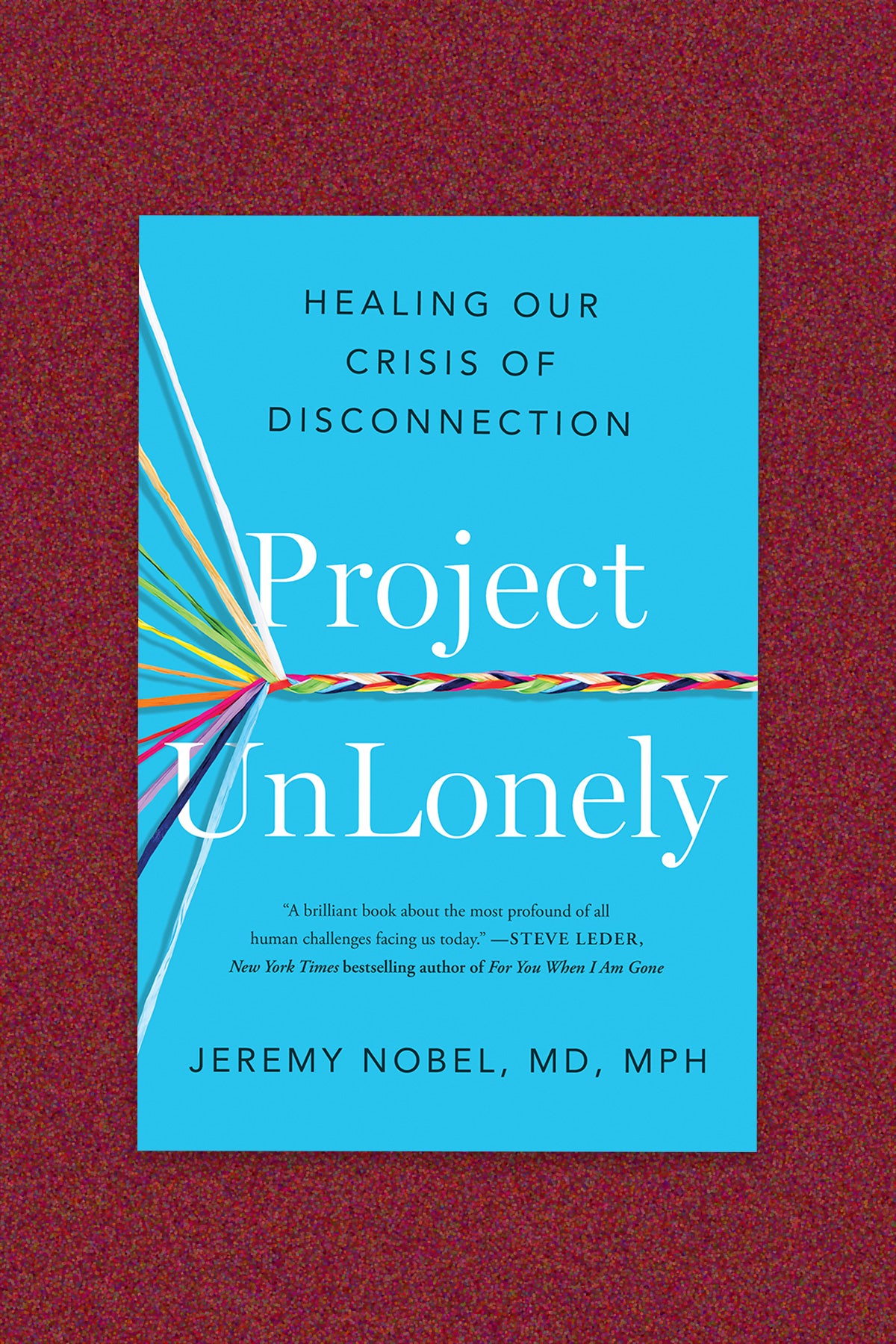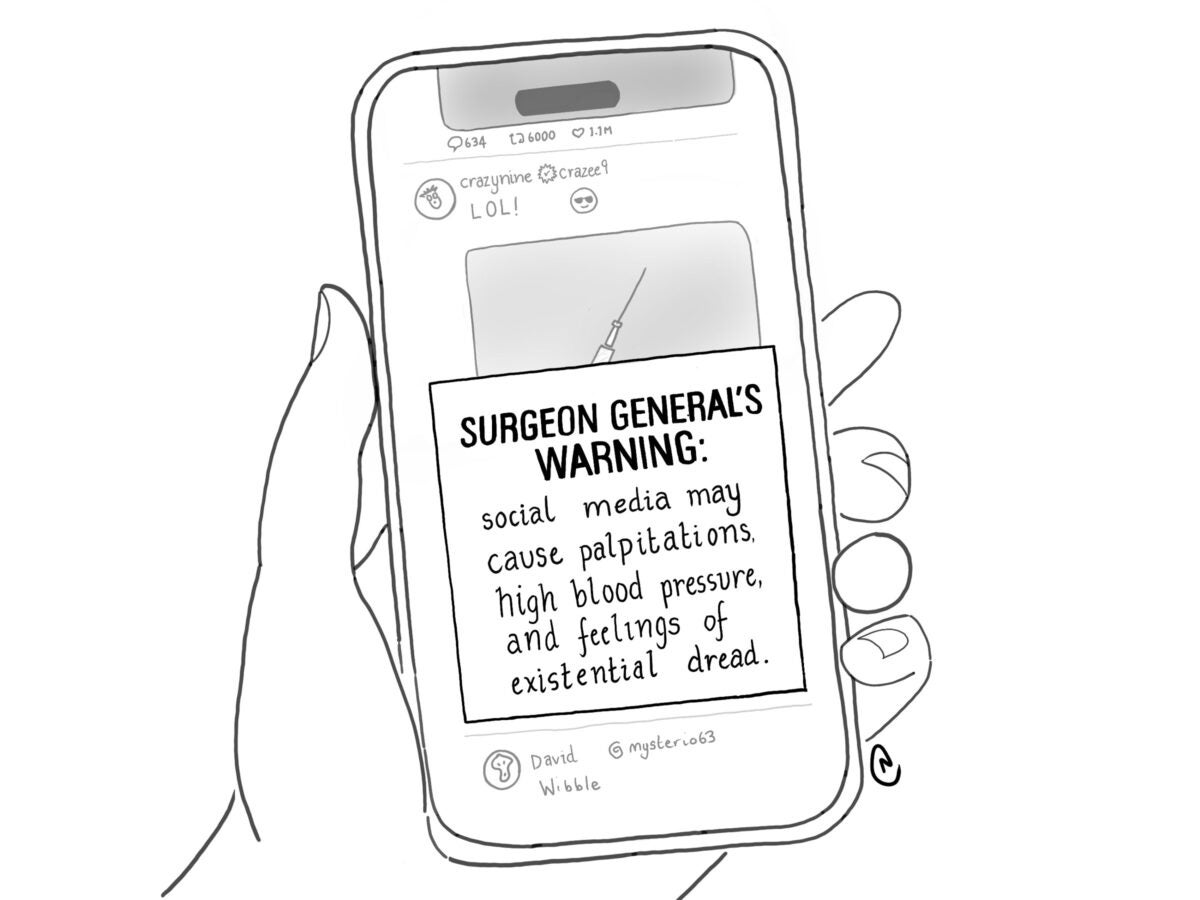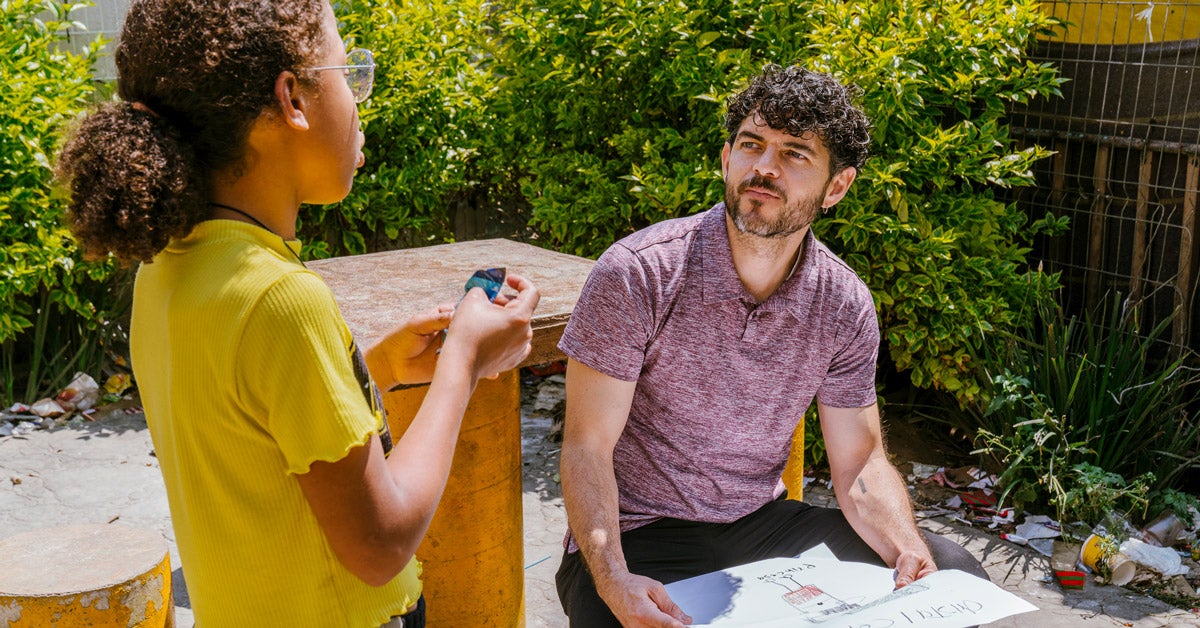
Book
How to get unlonely
During the decade he spent working as a primary care doctor, Jeremy Nobel began to notice that loneliness could be a health problem. Patients who told him they felt isolated weren’t great about taking care of themselves; they missed appointments and skipped their medications. Later, Nobel discovered a burgeoning field of research into how loneliness affects both physical and mental health—including studies that show it increases the risk of stroke, heart disease, and dementia by 32 percent, 29 percent, and 50 percent, respectively.
“Loneliness is a signal, like thirst,” Nobel tells Harvard Public Health. It points to a need important for survival and for an authentic, reliable, and durable sense of connection to others. Nobel made loneliness-busting the focus of his academic work; in 2016, he launched Project UnLonely as the signature initiative of his nonprofit institute, the Foundation for Art and Healing. Now, he’s out with a book, Project UnLonely: Healing Our Crisis of Disconnection.
Sign up for Harvard Public Health
Delivered to your inbox weekly.
Nobel’s mission is to develop effective treatment protocols for loneliness while reducing the stigma around the condition. “Public health campaigns succeed whenever a social consensus forms around [a] shared idealistic goal,” he writes in his book’s introduction. “It is how seat belt laws were passed, how drunk-driving deaths have been reduced, and how the unhealthy habit of cigarette smoking (not so long ago a widely accepted social norm) has been all but eradicated from every public place in the US.”
What’s more, he argues, reversing pervasive societal alienation could very well help boost the economy. A 2017 AARP study found that lonely Medicare beneficiaries cost the U.S. roughly $1600 more each year than people who were more connected to others. As for how to address the problem, Nobel—who teaches at the Harvard T.H. Chan School of Public Health and at Harvard Medical School—describes four possible approaches.
Make loneliness screening mainstream.
Nobel believes that loneliness should be considered among “weight gain or smoking, as risk factors that could lead to or exacerbate medical complications,” he writes, and that primary care physicians should screen patients for the condition. Assessment measures already exist, in the form of the short versions of the PROMIS Social Isolation Measure and the UCLA Loneliness Scale; Nobel argues that general practitioners should be as familiar with these tools as they are with the PHQ-9, the standard gauge for depression. Screening can also help raise awareness that loneliness should be taken seriously as a health problem.
Get doctors to prescribe socializing.
Primary care doctors can address loneliness by writing prescriptions for social activities like museum visits, classes, and nature walks. Patients appear to be more likely to socialize when their doctors order it. “This approach is already used extensively in the United Kingdom, where it is referred to as ‘social prescribing,’” Nobel writes.
Push prescriptions for art, too.
“There is some evidence that merely appreciating art, even while sitting all by yourself, can make you feel more socially connected,” Nobel writes. Research led by Dutch neuroscientist Janneke van Leeuwen—also a visual artist—suggests that when the part of the brain that processes visual art is active, the parts of our brain involved in social interactions are working too. “The implication of this research is that art has a specific biological function: to help us make sense of our social world, to help us assess signals of threats and opportunities, and to prompt our social responses,” writes Nobel. “If this is true, then it could be that any involvement with art and creative expression prompts the brain to construct mental models that make it easier to connect with other people.” One public health team in Quebec is already on board: Health insurance will cover doctor-prescribed visits to the full-time art therapist who works at the Montreal Museum of Fine Arts, as well as time in the museum’s therapeutic open studio.
Make mindfulness apps more popular.
Practicing acceptance-oriented meditation, guided by an app, can help reduce loneliness, according to 2019 research from the University of Pittsburgh. Study subjects who were taught to monitor their thoughts in an accepting way reported reduced feelings of loneliness in their daily lives; they also said they interacted with one more person than normal. Talking with one additional person per day might not sound like much, but Nobel says that doing it regularly means “those contacts can become pleasurable and self-reinforcing.”
“Loneliness,” Nobel reminds us, “is the most human of emotions.” And he wants us to appreciate the danger it poses.
Book cover: Courtesy of Avery + TarcherPerigee, Penguin Random House



